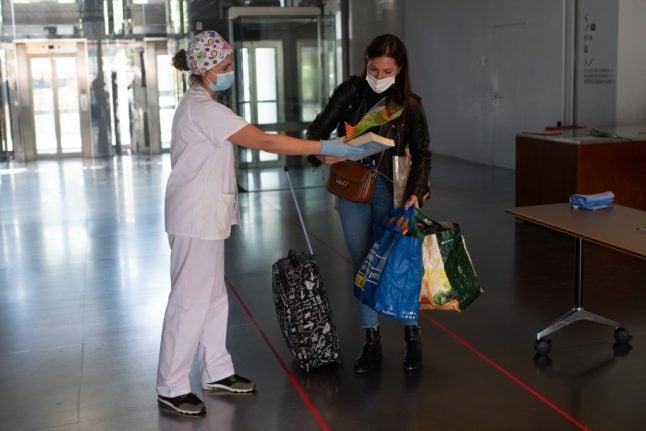It is the smallest number of new coronavirus deaths since March 22nd when 394 deaths were recorded.
The number brought the country's total deaths to 22,524, the third-highest number in the world after the United States and Italy.
More people were diagnosed as recovered than as infected over 24 hours for the first time since the start of the pandemic, the health ministry's emergencies coordinator Fernando Simón told a news conference.

The overall number of hospitalizations (blue), admittance into ICU (yellow) deaths (red) and recoveries (green) are shown in the chart below, which reveals that the curve of the number of hospital admittances is flattening. Data: Ministry of Health.
There were 2,796 new infections confirmed using polymerase chain reaction (PCR) tests, or swab tests, over the past 24 hours, while 3,105 people overcame the infection, he said.
“We can say there is some good news,” Simón added.
Datos sobre #COVID19 en España, desde el primer caso inicial, actualizados a día 24 de abril:
▶Confirmados por PCR 202.990
▶Fallecidos 22.524
▶Curados 92.355Información por CC.AA.:https://t.co/CV9EwMZDOA
Más info en⤵https://t.co/GH8nqIFQ4l#EsteVirusLoParamosUnidos pic.twitter.com/awDCM8mhbh
— Salud Pública (@SaludPublicaEs) April 24, 2020
But the total number of new cases was up by 6,740 in the last 24 hours when those detected by antibody tests were included, bringing the overall number of infections to 219,764 from 213,024 the day before.
Spain has been ramping up the use of antibody tests which show whether a patient's immune system has developed defences against the coronavirus, meaning they have been infected in the past.

The graph shows the total number of confirmed cases across Spain. Data: Ministry of Health.
Spanish health officials believe the epidemic peaked on April 2nd when 950 people died over 24 hours, nearly three weeks after the government imposed a nationwide lockdown that effectively confined almost 47 million citizens to home to slow the spread of the virus.
Parliament on Wednesday authorised the government to extend the state of emergency for two more weeks until May 9.
Prime Minister Pedro Sanchez signalled that the government could begin to ease its restrictions — some of the tightest in Europe — during the second half of May, but warned that “de-escalation will be slow”.
He has said the government may phase out restrictions by sectors and geographical areas, letting less-affected areas return to normal life first.
A first step to ease confinement will be taken at the weekend, when children will be allowed out for walks accompanied by an adult.



 Please whitelist us to continue reading.
Please whitelist us to continue reading.
Member comments